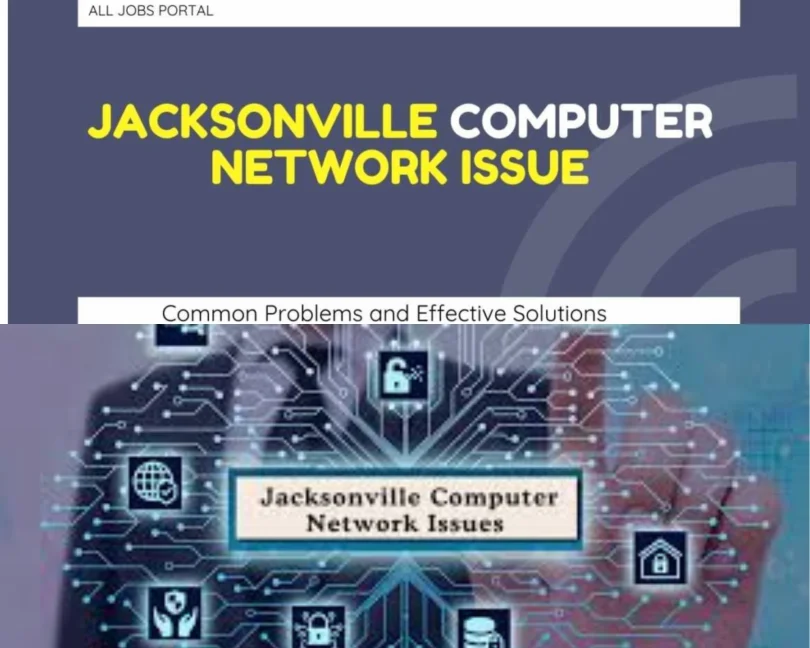In recent weeks, Jacksonville, Florida, has been grappling with a significant computer network issue that has disrupted services across various sectors, including local government, healthcare, education, and private businesses. The problem, which began as intermittent connectivity issues, has escalated into a full-blown crisis, leaving many residents and organizations frustrated and seeking answers. This article explores the root causes of the network issue, its impact on the community, and the steps being taken to resolve it.
The Root of the Problem
The Jacksonville computer network issue appears to stem from a combination of outdated infrastructure, increased demand, and potential cybersecurity vulnerabilities. According to local IT experts, the city’s network infrastructure has not kept pace with the rapid growth in population and digital reliance. Over the past decade, Jacksonville has seen a surge in tech-driven businesses and remote work, placing unprecedented strain on its network systems.
Additionally, there have been reports of attempted cyberattacks on the city’s network, raising concerns about the robustness of its cybersecurity measures. While no major data breaches have been confirmed, the possibility of malicious activity cannot be ruled out as a contributing factor to the ongoing disruptions.
Impact on the Community
The network issue has had far-reaching consequences for Jacksonville residents and organizations:
- Local Government Services: City offices have experienced delays in processing permits, licenses, and other essential services. Online portals for paying bills or accessing public records have been intermittently unavailable, causing frustration among residents.
- Healthcare: Hospitals and clinics have reported difficulties accessing patient records and coordinating care. While emergency services remain operational, the slowdown has impacted non-urgent care and administrative functions.
- Education: Schools and universities have faced challenges in conducting online classes and accessing digital resources. Teachers and students alike have struggled with unreliable internet connections, hindering the learning process.
- Businesses: Many local businesses, particularly small and medium-sized enterprises, rely on the internet for day-to-day operations. The network disruptions have led to lost revenue, delayed transactions, and decreased productivity.
- Public Safety: Although emergency services have not been directly affected, the network issues have raised concerns about the city’s ability to respond effectively to large-scale incidents that require coordinated communication.
Steps Toward Resolution
In response to the crisis, Jacksonville’s city officials and IT teams have launched a multi-pronged approach to address the network issues:
- Infrastructure Upgrades: The city has announced plans to invest in modernizing its network infrastructure, including the installation of new hardware and the expansion of broadband capabilities. These upgrades aim to increase bandwidth and improve reliability.
- Cybersecurity Enhancements: To address potential vulnerabilities, Jacksonville is partnering with cybersecurity firms to conduct a comprehensive audit of its systems. Enhanced firewalls, encryption protocols, and employee training programs are being implemented to safeguard against future attacks.
- Temporary Solutions: While long-term fixes are underway, the city has set up temporary hotspots and alternative communication channels to minimize disruptions. Residents are encouraged to use these resources until the network is fully restored.
- Community Outreach: City officials have launched a public awareness campaign to keep residents informed about the progress of repairs and provide guidance on how to navigate the disruptions. Regular updates are being shared through social media, local news outlets, and community meetings.
Looking Ahead
The Jacksonville computer network issue serves as a stark reminder of the importance of investing in robust and scalable digital infrastructure. As cities across the country continue to embrace technology, ensuring the reliability and security of their networks must be a top priority.
For Jacksonville, the road to recovery will require sustained effort and collaboration between government, private sector partners, and the community. While the current situation is challenging, it also presents an opportunity to build a more resilient and future-proof network that can support the city’s growing needs.
In the meantime, residents are encouraged to remain patient and proactive. By staying informed and utilizing available resources, the Jacksonville community can weather this storm and emerge stronger on the other side.



